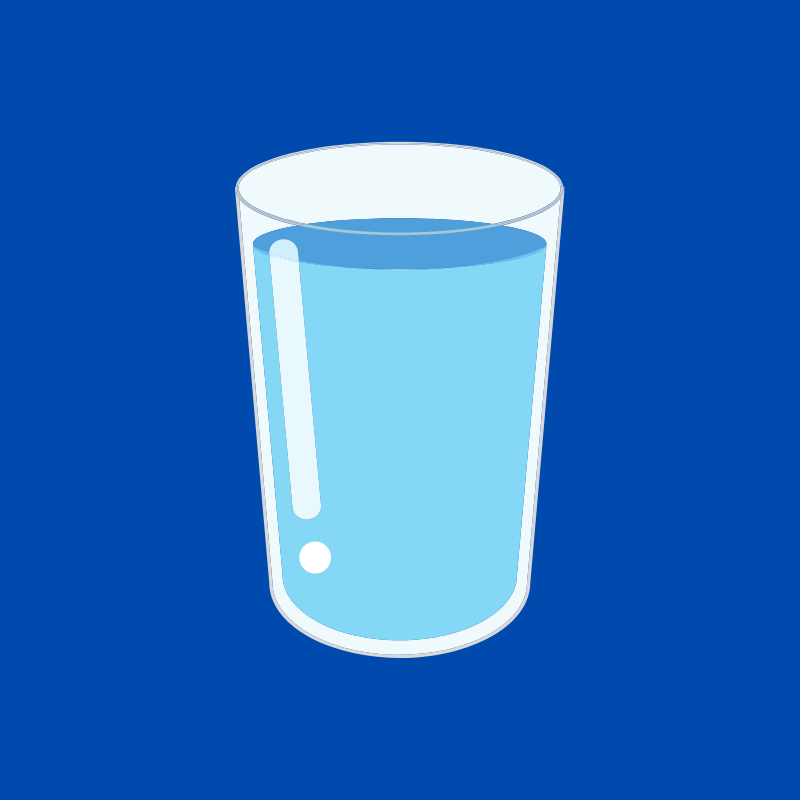Home water filtration systems are designed to remove sediment, chemicals, heavy metals such as lead cadmium, and copper, from a home’s water supply. Some of these particles can be harmful if ingested while others are aesthetically displeasing but will cause no harm. The goal of a filtration system is to provide clean, safe water to every tap in your home.
In this article, we will learn about the varying types of pollutants that can contaminate drinking water and the types of filtration systems that are currently available to help improve the water quality. We will investigate the benefits of installing a filtration system and see how a filtration system can improve your health and protect the future of our planet.
What Is in Your Water?
Environmental Protection Agency is responsible for setting regulatory standards for the number of impurities allowed in drinking water to ensure the safety of those consuming it. There are two basic categories of contaminants: primary and secondary.
Primary contaminants are those pollutants that pose a threat to one’s health. They include microorganisms, radionuclides, disinfectants, inorganics, and organics.
The second category is particles that are aesthetically displeasing but are safe to ingest. These include fluoride, iron, chlorine, aluminum, copper, and manganese to name a few.
Many of these impurities are removed at water treatment facilities before the water reaches your home through a series of steps that include coagulation, flocculation, sedimentation, filtration, and disinfection. Some, however, can enter the water supply after it has left the treatment plant but prior to reaching your home.
Other factors that negatively impact the quality of your water are industrial and agricultural pollution and climate change. Even within your home, there are conditions that decrease the cleanliness of the water such as leaching from lead or copper pipes, corroding pipes, or plumbing systems that are beyond their expected life spans.
Benefits of Installing a Filtration System
Installing a filtration system offers homeowners many advantages. First, they can increase the quality of water by improving the flavor, smell, and taste. For example, chlorine is added at treatment centers to combat pathogens but it can leave behind bad-tasting and smelling water.
Next, a filtration system will remove contaminants which, over time, can accumulate in your system creating potential health risks such as lead poisoning leading to brain and kidney damage. Excessive lead in the water supply can even interfere with red blood cells compromising their ability to carry oxygen throughout the body. Filtering the water can reduce the risk of certain cancers known to be related to high concentrations of chlorine or other cancer-causing pollutants.
Aside from the health benefits, installing a filtration system will help reduce the negative effects on the environment. The overwhelming use of bottled water as a substitution for drinking tap water is not only expensive but the creation of plastic water bottles uses a chemical manufacturing process that releases pollutants into the air. These bottles must be packaged and shipped which adds pollutants from these processes as well.
In addition, many of the empty plastic bottles eventually find their way into the ocean where they break apart into smaller pieces creating a new marine hazard known as microplastics. As a pollutant, microplastics are harmful to our environment and to animal health. Plastics are slow to degrade increasing the probability of ingestion as they settle in the tissues of many organisms. The long-term effects are unknown but research supports they pose a serious threat to our environment.
Types of Water Filtration Systems
Whether a homeowner is trying to improve the taste or color of their water or is in need of a system to remove contaminants, chemicals, and sediments, there are several types of filtration systems available. Each type removes different elements so learning what is actually in your water is a good first step. Testing can be done through a certified water testing lab or by purchasing a home water test. Once you know what is in your water you can choose a system that will address the issues found in your water.
Activated Carbon Filters
These filters are produced by grinding up a carbon force such as peat or coconut shells into small particles that are then treated with oxygen to create pores. These pores permit water to pass through them but restrict larger molecules such as chlorine and sediment from passing by. These carbon filters work well against chlorine, volatile organic compounds (VOCs), and some heavy metals such as arsenic and lead.
Reverse Osmosis Systems
As water enters your home it passes through semi-permeable filters and exits the reverse osmosis filtration system as fresh water known as permeate. This type of filtration system utilizes two filters: a sediment filter and a carbon filter to eliminate heavy metals, fluoride, salt, sediment, VOCs, and some herbicides and pesticides.
Ultraviolet Purifiers
These UV filtration systems work by deactivating microorganisms through ultraviolet radiation. They remove bacteria, viruses, and protozoans such as Escherichia coli, giardia, cryptosporidium, and salmonella. This system is popular as it is a chemical-free system that is easy to install, simple to use, and provides fast purification. It is also one of the more energy-efficient filtration types available.
Distillation System
This filtration system works by vaporizing the water supply and then condensing it. This process leaves behind impurities and soluble minerals such as calcium, magnesium, phosphorous, and dangerous heavy metals like mercury and arsenic.
Thinking About A Water Filtration Installation?
As we have learned there are many hidden threats to the water that you use for drinking, cooking, and other household tasks. These threats can come from bacteria, minerals, and chemical additives as well as manufacturing and agriculture runoff leaving behind poisonous pesticides and other dangerous contaminants.
By testing your water on a regular basis you can uncover the pollutants in your water and can elect to install water filtration systems to remove the particles that devalue the quality of your water.
Installing a filtration system will help you end your dependency on store-bought plastic bottles and help protect our environment from the toxic influences on our soil, animals, water, and humans that these plastics evoke. Installing a water filtration system will give you the cleanest and safest water possible protecting the health of your family while helping our precious planet.
Contact our team of plumbing experts today to explore what a water filtration system might do for you! We are the Oklahoma plumber everyone counts on to handle their plumbing needs.

